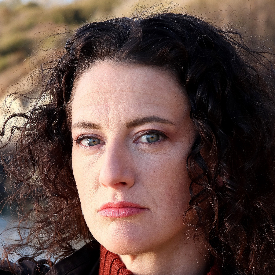As I write this, I’m sitting in my home office and procrastinating about a presentation that I will give at the adidas headquarters this week about contrarian thinking.
So much for practicing what I preach. This shoemaker decidedly has no shoes.
As I was staring at my wall, re-organizing my sock drawer, and tackling a million other things to avoid working on the presentation, a contrarian quote from the author Robert McKain popped into my mind: “Action precedes motivation.”
Conventional wisdom suggests the exact opposite. We are supposed to first get motivated and then take action. In other words, action is assumed to follow motivation, not precede it.
Too many of us are led astray by the fantasy of inspiration magically spurring us into action. We speak of “inspiration” as if it’s a divine visitation that will arrive at an unknown date and time. We fetishize the author who waits for inspiration to strike and then sits down to churn out the next Pulitzer Prize winner.
But this is not how things work. The reality is much closer to McKain’s description. Motivation comes only after you sit your butt down and start doing the work you’re supposed to do.
Trending: How to Transform Daily Habits into Life-Changing Rituals
We speak of solving our procrastination problem, but procrastination is the symptom, not the cause. Procrastination usually emerges because we’re afraid or uncertain.
I don’t know how to do this.
What if people point and laugh?
Writing this book is too daunting.
Faced with these demons, we do nothing.
Here’s the problem: If you wait for fear and uncertainty to go away, you’ll never get started. The more you wait for inspiration to strike, the longer you delay the necessary action that will bring about the inspiration. In other words, procrastination can prevent you from the doing the very thing that will take away its power.
What’s worse, procrastination, when ignored, doesn’t stay dormant. It starts doing push-ups. It gets stronger. That major life project that’s been languishing on your to-do list becomes harder and harder to tackle at each time you look at it but choose to do something else.
Trending: 5 Reasons Life Gets Better After Your 40s
The solution?
Start.
Starting is the hardest part.
Sir Isaac Newton’s first law of motion equally applies here: Objects at rest tend to stay at rest, and objects in motion tend to stay in motion. Once you get going, it’s easier to keep going.
Channel your inner William Faulkner, who is supposed to have said, “I only write when inspiration strikes. Fortunately, it strikes at nine every morning.”
Study the routines of most accomplished writers, and you’ll find that the word “inspiration” doesn’t describe their mode of operation. Inspiration is for amateurs. The professional knows better.
Trending: 5 Simple Strategies for Persuading Anybody
Once you start painting that empty canvas, once you start writing that proposal, once you start moving those levers, it will get much easier to keep going.
Action precedes motivation.
Now, about that presentation…
A version of this post originally appeared on Ozan Varol’s blog on contrarian thinking. For additional content like this, check out the Weekly Contrarian.






























